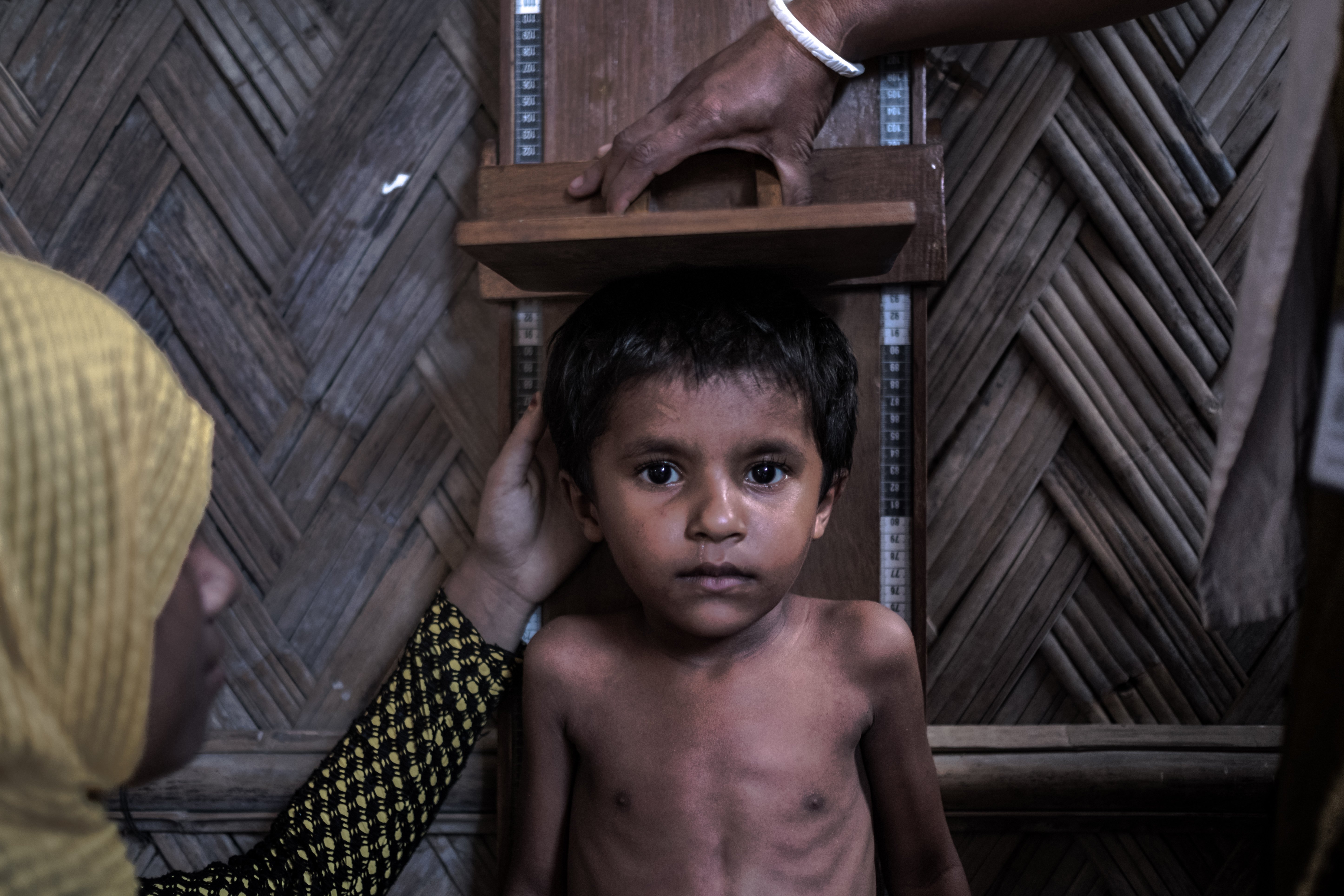Bangladesh is refusing calls from some states and NGOs for a bigger role for the UN's refugee agency in the international response to the Rohingya refugee crisis.
As previously reported by IRIN, Bangladesh, in an unorthodox move, has chosen the International Organization for Migration to lead international relief efforts, not UNHCR.
The issue punctuated informal conversations at a Geneva pledging conference for the Rohingya, where officials gathered new promises of close to $100 million, making a total of $335 million since 25 August.
Several senior observers, speaking on condition of anonymity, told IRIN the policy has led to wasteful friction between IOM and UNHCR, and a weakening of the UN’s ability to effectively protect Rohingya refugees’ rights.
Related: How will joining the UN change IOM?
Despite growing concern over the issue, M. Shameem Ahsan, Bangladesh’s representative to the UN in Geneva who was speaking at the donor conference, told IRIN today: “There is no need to change.”
William Lacy Swing, director general of IOM, dismissed rumours that the organisation’s position was linked to a close relationship with senior figures in the government and suggested he would hand back control immediately to UNHCR if Bangladesh asked him to. “It’s the [Bangladeshi] prime minister’s decision," he told IRIN. “Meanwhile, I can’t say I won’t do it.”
For his part, UNHCR chief Filippo Grandi told reporters he hoped for a “progressive adjustment… towards a more traditional structure in which we can fully exercise our protection and coordination responsibility.”
“In the end,” he added, “these are choices by the government.”
“Not entirely adapted”
A significant number of speakers returned to the theme and called for UNHCR to be allowed to take a leading role, something it has been denied up until now.
In his opening speech, Grandi himself referred diplomatically to the current coordination setup as “not entirely adapted to the current situation”; he even said he was making a “very strong pitch” for his own agency.
The European Commission’s top humanitarian official, Christos Stylianides, spoke via video message of priorities, including sticking with “international law and procedures”. Other speakers called for UN bodies to be allowed to work “in accordance with their mandates”.
Bangladesh is not a signatory to the 1951 refugee convention, and for years has entrusted IOM with a major role in refugee affairs, Ahsan explained. Despite sustained diplomatic lobbying, he told IRIN things would not change. “They [IOM] were with us for a long time.”
Ahsan directly rejected calls for UNHCR to take a bigger role, saying: “They [IOM] have been on the ground; they know the problem; they have been dealing with it; and they have done it very well... We have given everyone due scope to deal with the issues under their core competence and we don’t see any problem.”
Growing concern
Behind the scenes, feelings are running high: One observer said the dispute inside the UN had become a “food fight”; another described it as a “dog’s breakfast”. Observers worry that the relief operation will suffer. Several said that without putting UNHCR’s experience in protection front and centre, Bangladesh would get away with a security-driven response, with military-style closed camps, and feared it would blur the lines on whether the “Myanmar nationals” are in fact entitled to de facto refugee status.
Another analyst suggested even wider ramifications: Eroding UNHCR’s role in Bangladesh could further weaken respect for refugee rights, which are already under siege around the world, while IOM lacked the mandate, the technical skills, and the organisational culture to stand up to Bangladesh, the analyst claimed.
Gareth Price-Jones of the NGO CARE, however, said he was “fairly ambivalent” about the UN lead agency issue. “We just need effective coordination,” he said.
Manuel Bessler, head of Switzerland’s Humanitarian Aid Unit, told IRIN that even though Bangladesh was not a signatory to the refugee convention, the operation needed an “‘A-team” not only in terms of staffing “but also in terms of coordination”. He said Switzerland refused any weakening of the refugee regime. “For this, we have a refugee agency, that’s why we are calling for the proper roll-out of the system.”
Androulla Kaminara, a director in the EC’s humanitarian department, ECHO, acknowledged coordination is under discussion, saying: “Definitely, it’s an issue; a lot of people have raised it. I think it’s challenging everybody involved – on the Bangladeshi side and also from the international NGOs and UN system.”
A six-month appeal for the UN and key partners is priced at $434 million. UN fundraisers told IRIN they were satisfied with the financial response of today’s conference, which brings total pledges for the crisis (including non-UN channels) to $335 million. This donor response is healthy, officials said, given the fast-moving crisis and the fact that many donors are approaching the end of their planning cycles. New money is also expected from the World Bank, which is working on a Bangladeshi government request for support. No figures were released.
bp/ag






